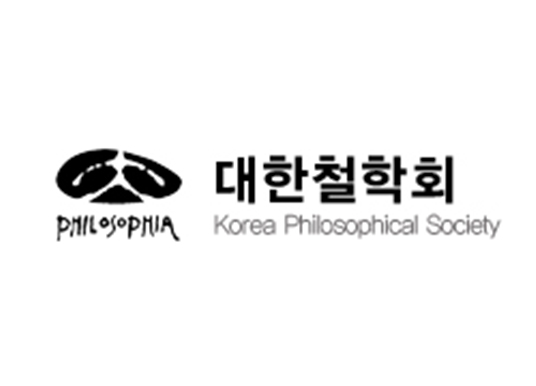현대적 존재 이해 안에서 인간 자유를 불가결한 물음으로 되돌리기
Restoring Human Freedom as an Indispensable Question within the Contemporary Understanding of Being
박현정
서울대학교 철학과
철학연구
2024, vol.172, pp. 59-87 (29 pages)
10.20293/jokps.2024.172.59
대한철학회
초록
현대적 사유는 존재를 완전하고 불변적인 원인으로 놓지 않고, 그 자체 철저히 생성하는 것으로 이해한다. 따라서 인간을 절대적 자기원인성을 일부 나누어 갖는 특권적인 존재자로서 다른 존재자들과 달리 ‘자유롭다’고 이해하는 방식도 더 이상 유효하지 않다. 이런 맥락에서 오늘날 가장 영향력 있는 존재론인 신유물론이 인간의 자유를 물질 자체에 속하는 생성의 힘으로 환원시킬 뿐 별개의 물음으로는 취하지 않는 것도 자연스럽다. 하지만 신유물론의 함의와는 별개로, 인간 자유의 가능성은 여전히 중요한 문제로 남아 있다. 우리는 생성하는 존재 이해가 허용하는 한계 내에서, 인간 사유의 자유의 가능성을 확보해야 한다.
본 논문은 생성하는 존재를 숙고하는 현대적 존재론 속에서도 여전히 ‘자유’를 논의할 수 있음을 논증하고, 자유를 불가결한 물음으로 되돌리고자 한다. 이를 위해 본 논문은 하이데거를 끌어들인다. 하이데거는 전통 형이상학에 맞서 존재의 생성을 숙고할 뿐만 아니라, 신유물론적 계열과는 달리 생성하는 존재와 공속하는 인간 ‘사유’의 역할을 진지하게 물음거리로 삼고, 이를 ‘자유’라는 이름 아래 이해한 사상가이기 때문이다.
본 논문은 먼저 하이데거가 형상화한 사유의 자유가 의미하는 바를 밝힌다. 사유는 그 자유에서 우선 실존적인 동시에 탈존적이어서, 제한되는 동시에 그 제한을 넘어서 가는 자기의 시간성을 의미한다. 그리고 이 시간성에서 현존재는 그때마다 자기가 이해하는 존재에다 다름 아닌 ‘무’를 도입한다. 그런데, 자유란 실은 사유가 존재와 공속하는 방식을 의미한다. 즉 사유는 자유를 통해 존재와 공속한다. 그래서 항상 사유와 공속하는 존재 역시 사유의 자유를 통해 무와 공속한다. 사유가 그때마다 수호하는 무를 통해 존재는 비로소 진리인 동시에 비-진리일 수 있으며 생성하기를 그치지 않는다.
이렇게 볼 때, 존재의 생성을 숙고하는 현대적 존재론은 반드시 자유 논의를 포기할 필요가 없다. 오히려 반대로 자유 물음이야말로 생성하는 존재와 공속하는 사유의 본질 현성으로서 가장 적극적으로 숙고되어야 할 물음으로 정당화될 수 있다.
Contemporary thought no longer views Being as a complete and unchanging cause; instead, it understands it as fundamentally generative itself. Consequently, the traditional view of humans as privileged beings who uniquely share in absolute self-causality and possess freedom, unlike other beings, is increasingly challenged. In this context, the influential ontology of new materialism reduces human freedom to the generative power inherent in matter itself and does not consider it as a separate issue. Regardless of the implications of new materialism, the question of human freedom remains significant. We must explore the possibility of human thought’s freedom within the parameters established by the understanding of generative Being.
This paper argues that it is still possible to discuss ‘freedom’ within contemporary ontology to restore freedom as an indispensable question. To support this argument, the paper references the work of Heidegger. Unlike the new materialist tradition, Heidegger examines the generation of Being in contrast to traditional metaphysics and seriously interrogates the role of human thought in relation to generative Being. He is a philosopher who recognizes the co-belongingness of finite thought with finite Being under the concept of ‘freedom.’ The paper begins by clarifying the meaning of freedom of thought as articulated by Heidegger. Within its freedom, thought is both existent and ek-sistent, signifying its own temporality, which is both limited and transcends those limitations. Since freedom refers to the manner in which thought enters into a co-belonging relationship with Being, through this temporality, Dasein introduces ‘notness’ into the Being it comprehends at each moment. The Being that continuously co-belongs with thought also co-belongs with notness through the freedom of thought. Here, through the notness that thought preserves at each moment, Being can embody both truth and non-truth, continuously generating without end.
From this perspective, contemporary ontology that considers the generation of Being does not have to abandon the discussion of freedom. On the contrary, freedom can be justified as a question that should be actively contemplated, representing the essential manifestation of thought’s co-belongingness with generative Being.

